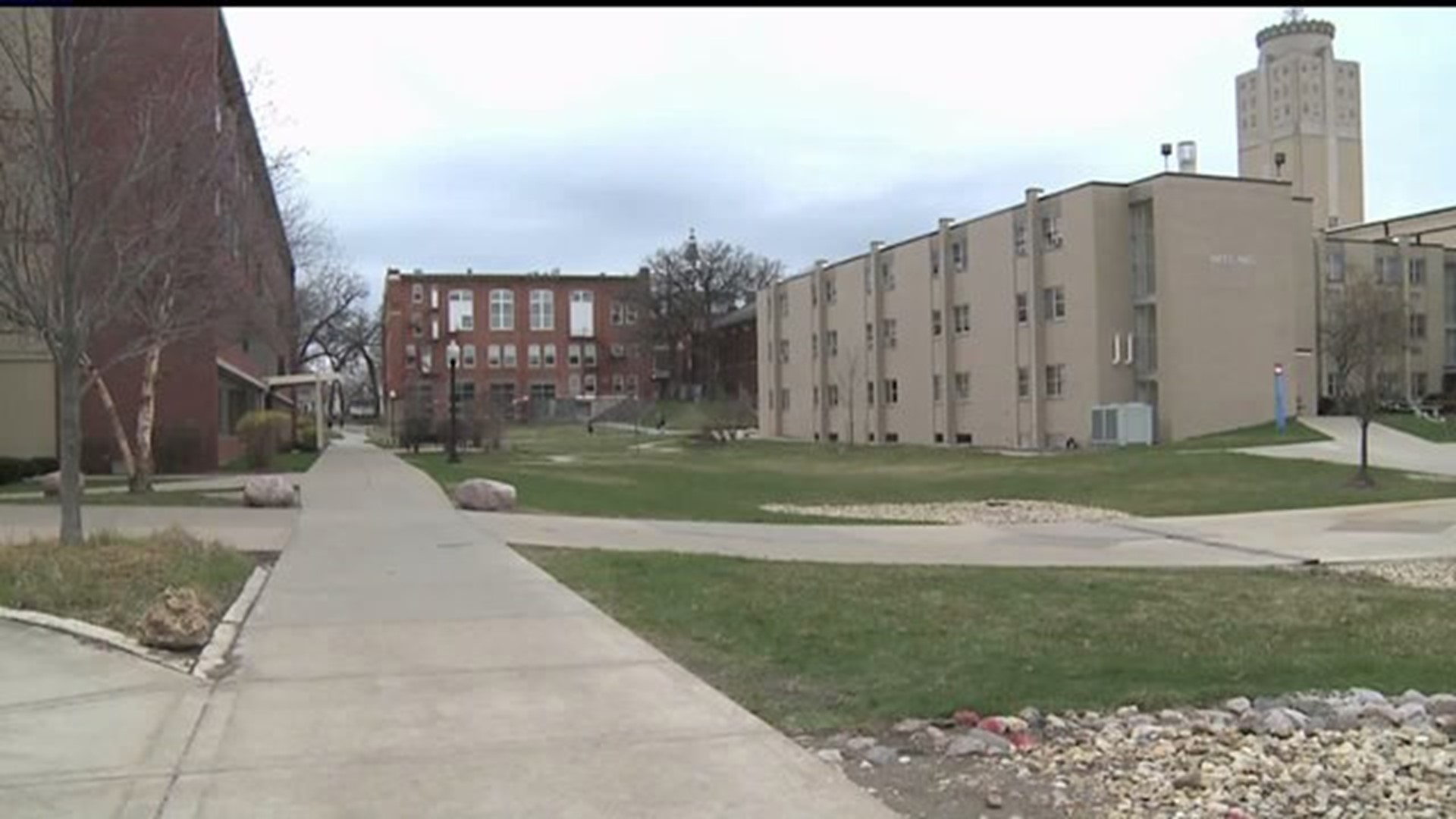A St. Ambrose University student has been diagnosed with bacterial meningitis, according to the university president.
A notice about the situation was sent out to students, faculty, and staff on Tuesday, March 29, 2016 by University President Joan Lescinski, CSJ, PhD (Sister Joan). The notice said that the student was diagnosed while they were at home during Easter break.
The university was working with area public health agencies to contact people who may have been in close contact with the student so they can start preventative treatment, according to Sister Joan.
"Public health officials have advised that if you have not been contacted there is no reason to be concerned at this point in time," Sister Joan's notice said.
When asked if the university was taking extra precautions to clean the campus, Assistant Vice President Linda Hirsch said that the campus facilities are cleaned daily.
"The primary recommendation in regard to cleanliness has been that we encourage students and staff to be vigilant in maintaining good personal hygiene," Hirsch said.
While most can recover from bacterial meningitis, the Centers for Disease Control and Prevention says "it can cause serious complications, such as brain damage, hearing loss, or learning disabilities."
The CDC says that meningitis is spread through saliva or mucus.
"Fortunately, most of the bacteria that cause meningitis are not as contagious as viruses that cause the common cold or the flu," read information from the CDC. They added that the bacteria aren't spread by casual contact or through the air.
Symptoms usually develop within 3 to 7 days of exposure and include sudden fever, headache, and stiff neck. Other symptoms like nausea, vomiting, increased sensitivity to light, and confusion are possible.

